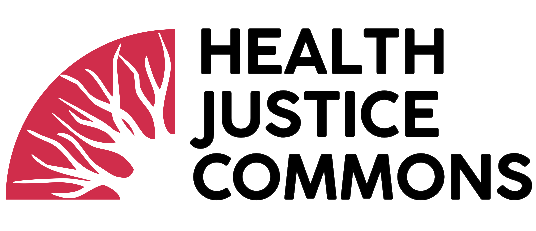5 Health Justice Commons Principles:
#1 - Justice is the best medicine
#2 - Health is the greatest wealth
#4 - To harm one is to harm all
#4 - To harm one is to harm all
Implementing the precautionary principle now is essential for our human and planetary future.
The precautionary principle states that when an activity raises threats of harm to human health, other species, or the environment, precautionary measures should be taken even if some cause and effect relationships are not fully established scientifically. It advocates a ‘look before you leap’ approach to new technologies, techniques, products or practices. In today’s world what is generally practiced is profit at all costs, and the onus of evidencing harm is squarely placed on the shoulders of those who have suffered.
From the victim-blaming of sexual abuse survivors and refugees seeking political asylum, to climate change deniers, social attitudes and institutions are organized to shield those who cause harm from liability or consequences. With regard to medical harm or health risk, Bayer-Monsanto’s continued denial looms large as another example. The MIC often normalizes harm through its standard practices, such as the non-consensual pelvic exams of anesthetized patients, a common practice that is legal in all but 6 states. These patterns of neglect and extraction – stripping resources from our communities without proper consent or providing anything in return – are commonplace.
Health insurance companies are guilty of this, their ‘cost containment’ strategies are killing or endangering the lives of millions of people in the US. 1 in 4 people with diabetes in the US are insulin rationing due to high costs, a life threatening practice. The majority of these individuals are ‘insured’. Carrie Ann Lucas, well known disability rights attorney, died in February 2019 as a consequence of being denied a $2000 medication. Lucas was also forced to insulin-ration in the months leading up to her death. Her health insurer, UnitedHealthcare recently lost a landmark class action lawsuit for systemic denial of life-saving mental health services. UnitedHealhcare was #5 on Forbes 2018 list of wealthiest corporations. Learn more and take action for Carrie Ann!
What enables these deplorable practices to continue? The high burden of proof leveled against those of us who survive great harm, are struggling for our lives amid resulting illness, and are often already marginalized so our voices are more easily silenced, are painfully reflected by an environmental catastrophe that occurred in Bhopal, India. On December 2, 1984, the Union Carbide pesticide plant exploded, unleashing 40 tons of highly toxic methyl isocyanate along with many other toxic gases. According to the BBC, more than half a million people were poisoned. At least 15,000 died. Survivors such as Krishna Bai recount experiences of witnessing their children blinded by the gas and perishing. Bai herself continues to have serious heart, mobility and sight impairments; she has received $566 for compensation. That money came from a $470 Million settlement reached with Union Carbide in the Indian Supreme Court. However survivors, medical experts and activists alike assert that the settlement was based on a gross under-calculation of damage, leaving out 93% of people affected by what is now widely recognized as the most severe industrial accident on the planet.
Over 30 years later, the toxins have not been properly remediated and their effects continue to cause illness and disability to survivors and their descendants who demand just redress for the immeasurable cost to their lives, families, and the surrounding soil, air and waterways. Dow Chemical, which bought Union Carbide in 2001, claims that since the disaster occurred prior to its ownership, it has no responsibility to pay for survivors’ medical costs nor clean up the toxins that remain. The Indian Supreme Court is now considering a 2nd ‘curative petition’ filed by the government to compel Dow to pay $8.1 billion in damages. A prior petition for $1.2 billion was dismissed by the court.
Industries, often with the complicity of governmental and legal bodies, undermine our collective right and responsibility to understand and fully adopt the precautionary principle. Robert Proctor, Stanford, further proposes that corporations are expert at using marketing to manage public opinion and manufacture doubt, which he calls agnotology. In this podcast, Proctor describes how the tobacco industry did this for decades to suppress research exposing its dangers. He also links how climate change deniers employ similar tactics. These efforts combine bribes of federal agencies, corporate lobbying and buy-offs of publicly elected officials, and calculated public relations campaigns. The result is that we get fooled into failing to protect our own and the common good by corporations that exploit our reasonable desire to not ‘get tricked’.
Collectivizing support and global implementation of the precautionary principle, and truly democratizing decision-making for major technological and health related decisions will make a world of difference in safeguarding our futures.
